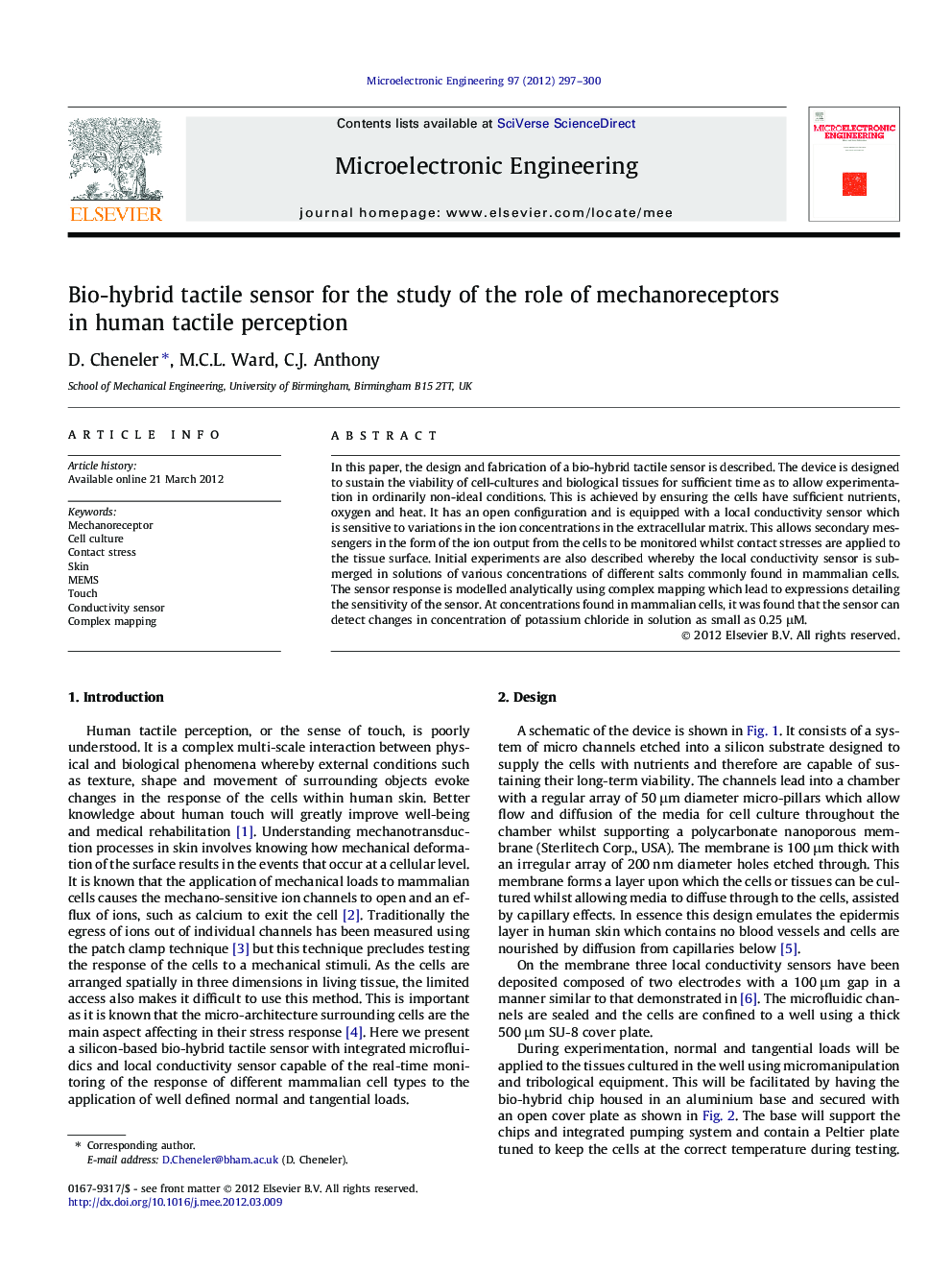| Article ID | Journal | Published Year | Pages | File Type |
|---|---|---|---|---|
| 544393 | Microelectronic Engineering | 2012 | 4 Pages |
In this paper, the design and fabrication of a bio-hybrid tactile sensor is described. The device is designed to sustain the viability of cell-cultures and biological tissues for sufficient time as to allow experimentation in ordinarily non-ideal conditions. This is achieved by ensuring the cells have sufficient nutrients, oxygen and heat. It has an open configuration and is equipped with a local conductivity sensor which is sensitive to variations in the ion concentrations in the extracellular matrix. This allows secondary messengers in the form of the ion output from the cells to be monitored whilst contact stresses are applied to the tissue surface. Initial experiments are also described whereby the local conductivity sensor is submerged in solutions of various concentrations of different salts commonly found in mammalian cells. The sensor response is modelled analytically using complex mapping which lead to expressions detailing the sensitivity of the sensor. At concentrations found in mammalian cells, it was found that the sensor can detect changes in concentration of potassium chloride in solution as small as 0.25 μM.
Graphical abstractFigure optionsDownload full-size imageDownload as PowerPoint slideHighlights► Design and fabrication of microfluidic device to study mechanotransduction in cells. ► Fabrication and experimental verification of membrane based conductivity sensor. ► Mathematical analysis of conductivity sensor using complex mapping.
